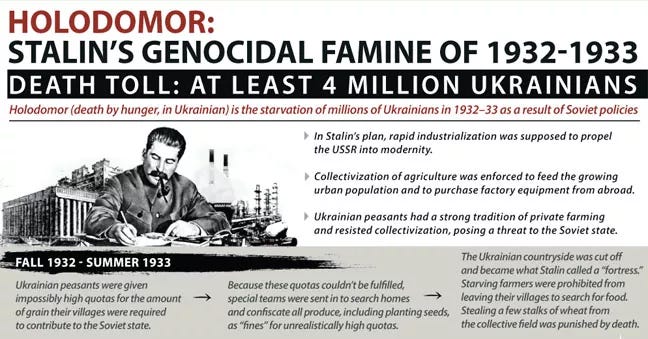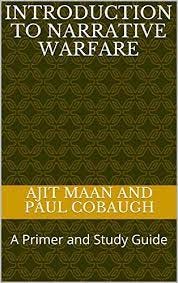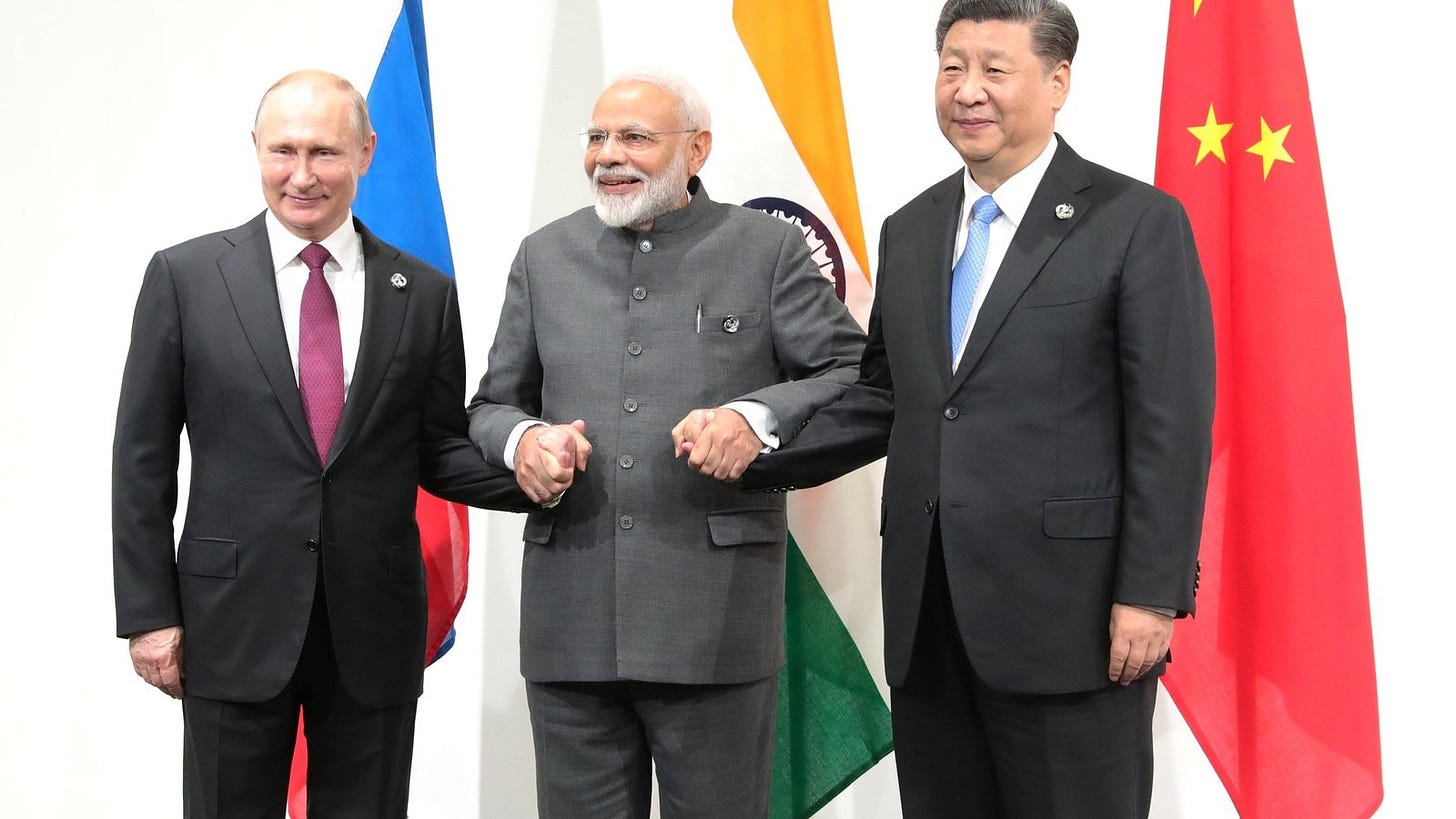Let's see where we are with Ukraine, as we ease into Spring offensives and maybe even Russian counter-offensives.
It's not whether Putin has lost (he has) we must support Ukraine and a global plan for, "what's next."
So, TAT followers, today I'm trying something new. Since it appears that my cast will prevent me from typing for several weeks, I'm going to try to come into the 21st century and use talk-to-type software. I am grateful that y’all, are willing to be my Guinea pigs. As an old-timer, I still prefer to pound keys on a keyboard, but necessity is the mother of innovation.
—---------------------
It's been a while, so I thought we should double back and revisit, where we are with the Russia/ Ukraine war. Since this is a very broad topic, today will just be limited commentary about the four following categories:
BLUF (Old army expression for, Bottom-Line, Up Front):
If winning is defined as, preventing Putin from achieving his immoral and genocidal goals Against Ukraine and her people, then the BLUF is: Ukraine is winning.
There are several reasons that Ukraine is winning, but there's only enough space in this article to discuss a handful of them.
Where are we now in this conflict? And what do we expect to see in the coming few, critical months?
Where do we expect global security alliances to be dramatically challenged in the coming years? What alliances, partnerships and other instruments will be of importance to the RBIO/ rules-based, international order?
Before working our way through today’s TAT, we must make some assumptions to build our thoughts around:
Putin and like-thinking Russian thugs/ oligarchs etc., must be defeated, not just contained.
This may very well keep Putin and his thugs in power, but when I say “defeated”, I'm talking exclusively about Russia's ability to be a primary aggressor, that maintains the capacity to threaten the sovereignty of her neighbors.
We must also assume that the current block of nations that underpin Ukraine, continues to provide the intelligence and logistics of victory.
Finally, we must acknowledge that it's the RBIO that is providing the primary deterrent and support base for nations under assault, by serial aggressors like Putin, Xi, etc.
If winning is defined as, preventing Putin from achieving his immoral and genocidal goals against Ukraine and her people, then the BLUF is: Ukraine is winning.
Although Putin continues to employ countless false narratives to justify his genocidal invasion of Ukraine it all really just comes down to Putin being a classical Russian leader, desiring to restore Imperial Russia, with expanded borders.
Any cursory read of the evidence, shows that chasing Nazis in Ukraine or preventing Ukraine from joining NATO, are nothing more than Putin's customary BS. If it comes out of the Kremlin, it's not worth reading.
Regardless of Putin's false narratives justifying his invasion or that it's all just BS, the evidence is quite clear, Putin is losing. In military terms, he has not achieved any of his objectives.
There are several reasons that Ukraine is winning, but there's only enough space in this article to discuss a handful of them.
Wars require training in the specific tasks and mission types that troops will encounter on the battlefield. Not only Have Russian troops demonstrated that they were poorly trained and even more poorly led, but the overwhelming majority also didn't even know they were going to war until they woke up in Ukraine, bewildered, poorly equipped and facing fierce resistance. This is the rough equivalent of a bunch of Russian sheep attacking A fierce pack of Ukrainian wolves that are not only defending their turf but their pack.
Ukraine has a long history of having to endure Russian/ Soviet aggression and genocide. This long history of oppression has given Ukraine the resilience that every nation should pursue. Building resilience when it’s at historical lows, like in the current US, requires ethical influence at home, as well as abroad.
A large percentage of the surviving Ukrainian population have experienced Nazi atrocities and Stalin's atrocities firsthand. Putin is a combination of both, in the eyes of Ukrainians. For this reason, Ukrainians know full well what will happen if Putin is not defeated. Ukraine is in a “defend or die” position. If Putin completes his occupation of Ukraine, he will erase Ukrainian culture from the map. Hence, cultural genocide. Stalin tried this in the 1930s during the Holodomor, as did other Tsars and Soviet leaders before and after.
Ukrainian and to a lesser extent, NATO support for influence operations, have pretty much defanged Russian influence operators. There are many reasons for this but most of all, it comes down to doing a couple of things that the West refuses to learn; aggressive, narrative-centric campaigning in influence and how to operate in NW/ Narrative Warfare. Also, Ukraine shares enough layers of identity, that they are not impacted by Russian influence operations. In fact, that shared identity is what allows them to out-compete Russians. This is a long discussion about what NW/ Narrative Warfare really is (not what DoD believes) and how narrative matters to all influence operations.
In fact, NW is not only the core of Ukraine’s fight but it is the COG, Center of gravity in maintaining NATO and other partner support for defeating Russia.
Under this heading, I would be remiss should I not also acknowledge the dramatic superiority of top-tier weapons systems and logistical systems. In respect to logistics and top-tier weapons, the West is giving Putin, Xi, Modi and others, an expensive lesson in depending primarily on Russian designed systems.
Where are we now in this conflict? And what do we expect to see in the coming few, critical months?
Under this heading, I highly recommend following the URL for ISW, Institute for the Study of War. The website includes some of the biggest names in military expertise. Their reporting is probably the most accurate you're going to get on the tactical and operational situations in Ukraine. To be perfectly frank, I don't always agree with their assessments. I do though recognize their unique expertise and credibility in reporting.
Like politics, there are always plenty of pundits and so-called experts when it comes to military matters. Not all are created equal. One particular area that I disagree with is that they often assess situations based on doctrine and what most call “mirror-imaging.” In other words, they don't remove their own personal biases from their analysis. This has often been a significant flaw in US strategy and doctrine. This is another critical reason to follow narrative analysis processes, when strategizing against your adversary. The only way to truly understand your opponent is to go through the long, tedious task of narrative identity analysis.
If we listen to all the war pundits and strategists that we read online, they will tell you that this summer is critical to whether or not Ukraine survives. We also must remember that many of these pundits are the same ones that expected Ukraine to lose within the first two weeks. Mirror imaging often leads to defeat in the long run.
d. While I agree that this Spring and Summer are important in Ukraine’s defense, I don’t see how it could be catastrophic to her. By all credible evidence, Russia is digging in to defend the areas In the east that they already controlled at the beginning of the war. Their offensive capabilities are either nonexistent or so limited that they don't dare try to take more turf. Even Putin’s so-called friends, like Xi and Modi will have a tough time keeping Putin stocked with what he needs for success. Scrutiny of Chinese and Indian support for Putin, is now globally intense. This is a strong indicator of just how important collective and cooperative security agreements are, to the sustenance of the rules based international order.
“Russia put the international legal order at risk when it launched its war a year ago. But what has and will determine the future of the international legal order is how nations respond to that violation. If that response is sustained and if the war helps prompt these and other innovations, it is possible that what began as the greatest threat to the international legal order may turn out to be its salvation.
-Brookings
-How Russia’s invasion of Ukraine tested the international legal order
-03 April 2023
e. Wars or conflicts are not what you expect them to be, based on past history. Each and every stage of conflict must be addressed, based on the merits of the perpetually evolving situations. Ignoring reality so that old doctrine can be the round peg, pounded into ever-changing shapes of holes is so ludicrous that it’s laughable at best, disastrous at worst. Ukraine and NATO are learning these lessons together and doing it, OJT, on the job training.
Where do we expect global security alliances to be dramatically challenged in the coming years? What alliances, partnerships and other instruments will be of importance to the RBIO/ rules-based, international order?
First and foremost, NATO is stronger, bigger and working together better than anyone expected. They are also working to adjust to new types and tactics of conflict. So much has changed since big armies lined up on opposite sides of a field and fought brutally.
The war in Ukraine has highlighted a variety of new tactics, tools and strategies. One of the primary innovations is that NATO, like the US, is finally coming to their senses regarding influence being the core of conflict. Both NATO and the US have one foot in antiquated and useless doctrine and one foot unceremoniously placed in ongoing conflict, where they must learn while they are doing.
Xi, Modi and others who attempt the balancing act between Putin’s cheap oil and remaining unstained by their relationship with a genocidal aggressor, are feeling intense pressure. All of the primary organizations that matter, like the UN, ASEAN, NATO, the QUAD etc. are taking notes, and proceeding with caution.
The picture below should worry everyone that is planning/ strategizing for what comes next. Putin, Xi and Modi, with two of the globe’s top economies, three with large standing armies, two that are known aggressors and all three with more to gain together than with a solid relationship with the West.
Modi in India is a prime example of this conundrum. There is intense pressure on Modi, as the current G 20 host to act in accordance with G 20 values. This applies to Modi within ASEAN, the QUAD and more. While I am a longtime supporter of Indian Democracy, I've also been a longtime critic of Modi and his radical Hindutva that is essentially violent extremism for Hindus, on par with the KKK here in the US.
India’s formal “non-alignment” is a mere farce. Modi is a user and will say or do anything that enables his selfishly personal goals, not India’s.
Despite Modi's attempts to support Putin and help him evade sanctions, India is coming under increasingly strong pressure from outside organizations, to minimize Russian support.
Pressure on Russian allies by a variety of sectors, is slowly shifting global geo-politics.
I don’t believe that there is an imminent change of polarities within the RBIO, but there will be some important deviations, from what we knew for the past 70 or so years. Those alterations must be planned for and carefully woven into our NSS, National Security Strategy.
Now, while that nations that share western liberal values are operating in harmony against Putin, we must also work to weave all of the important global and regional organisations, effectively into the RBIO. This would be the single biggest deterrent to global aggressors like Putin and Xi. This effort must be on a parallel track with supporting Ukraine on the battlefield. Planning for, “what comes next” is always critical to sustainable success. Afghanistan and Iraq are perfect examples of what failure looks like when strategy is flawed or non-existent.
The lesson for today… See the situation clearly, adjust for developments and always… strategize for now, and what comes next.
Cheers all and thanks for your patience,
Paul









